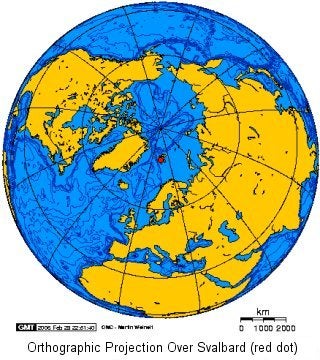What a long, hard road it has been getting Congress to pass a strong climate and energy bill. I regret to say that the news is not especially good, though the door is not yet completely closed.
After weeks of intense negotiations among EDF and other environmental organizations, Senate leaders, the White House, and some sympathetic members of the utility industry, we are still several votes short of the 60 required to break a Senate filibuster.
Because of this, Senate Majority Leader Harry Reid has announced that the Senate will not take up a limit on global warming pollution before the August recess, though it “may” consider it in September.
With a crowded Congressional calendar, and time running out, this announcement is discouraging. Will the Senate decide to take any meaningful steps? Right now it’s a long shot, but we’ll continue to work doggedly for a good Congressional outcome.
Consequences of Climate Inaction
While the politics are uncertain, the science is not. The consequences of Senate inaction are real and serious.
To name a few:
The Crisis Isn’t Going Away: 2010 is on pace to become the warmest year on record, following the warmest decade on record: 2000-2009. Glacial and polar ice continues to melt at astonishing rates, worsening the threat of sea level rise, coastal flooding, and threatening the supply of drinking water for hundreds of millions of people around the world. Year by year and decade by decade, these and other very serious trends will get worse and worse with no end in sight.
Squandering the House-Passed Bill: To pass legislation, you need to move bills through both houses of Congress. The House of Representatives has already cast a clear, solid vote on this. If the Senate fails to act now, all that hard work will have been wasted and we’ll have to start from scratch next year with a new Congress likely to be less inclined to act responsibly.
Inaction Now Only Makes It Harder Later: Science, not politics, is ultimately in charge of this crisis. And the science is very clear. We must begin cutting our emissions now to avoid even more dramatic cuts later. A delay of two or three years only makes the necessary pollution cuts all the more severe and disruptive to our economy and way of life.
I could go on, but the point is clear. Senate inaction will have very serious consequences for our environment, our economy, and, ultimately, our entire civilization.
That’s the message we will continue to deliver to Senate leaders and the White House. And we will continue to let you know how you can help us in August and September as we continue to push forward.
One other thing is clear: Whatever the Senate decides in the coming days and weeks, we aren’t going anywhere.
Global warming is the most serious environmental threat facing the planet and will remain our top organizational priority, one which we will continue to take on in a variety of ways, including:
- Promoting local and state actions;
- Getting our national policies right;
- Working directly with businesses to improve efficiency and cut emissions; and
- Negotiating internationally for global pollution limits.
Wherever there is a serious effort to cut global warming pollution, we will be there, fighting for the strongest possible solution.
The hour is late and the window for Senate action this year is closing. But, whatever the future holds, we will continue to fight to prevent the catastrophic threat of run-away global warming.
What a long, hard road it has been getting Congress to pass a strong climate and energy bill.
As someone who has fought with us for landmark legislation, you deserve to know where things stand. I regret to say that the news is not especially good, though the door is not yet completely closed.
After weeks of intense negotiations among EDF and other environmental organizations, Senate Leaders, the White House, and some sympathetic members of the utility industry, we are still several votes short of the 60 required to break a Senate filibuster.
Because of this, Senate Majority Leader Harry Reid has announced that the Senate will not take up a limit on global warming pollution before the August recess, though it “may” consider it in September.
With a crowded Congressional calendar, and time running out, this announcement is discouraging. Will the Senate decide to take any meaningful steps? Right now it’s a long shot, but we’ll continue to work doggedly for a good Congressional outcome.
Consequences of Climate Inaction
While the politics are uncertain, the science is not. The consequences of Senate inaction are real and serious.
To name a few:
The Crisis Isn’t Going Away: 2010 is on pace to become the warmest year on record, following the warmest decade on record: 2000-2009. Glacial and polar ice continues to melt at astonishing rates, worsening the threat of sea level rise, coastal flooding, and threatening the supply of drinking water for hundreds of millions of people around the world. Year by year and decade by decade, these and other very serious trends will get worse and worse with no end in sight.
Squandering the House-Passed Bill: To pass legislation, you need to move bills through both houses of Congress. The House of Representatives has already cast a clear, solid vote on this. If the Senate fails to act now, all that hard work will have been wasted and we’ll have to start from scratch next year with a new Congress likely to be less inclined to act responsibly.
Inaction Now Only Makes It Harder Later: Science, not politics, is ultimately in charge of this crisis. And the science is very clear. We must begin cutting our emissions now to avoid even more dramatic cuts later. A delay of two or three years only makes the pollution cuts we need to reach needed reduction targets all the more severe and disruptive our economy and way of life.
I could go on, but the point is clear. Senate inaction will have very serious consequences for our environment, our economy, and, ultimately, our entire civilization.
That’s the message we will continue to deliver to Senate leaders and the White House. And we will continue to let you know how you can help us in August and September as we continue to push forward.
One other thing is clear: Whatever the Senate decides in the coming days and weeks, we aren’t going anywhere!
Global warming is the most serious environmental threat facing the planet and will remain our top organizational priority, one which we will continue to take on in a variety of ways, including:
Promoting local and state actions;
Getting our national policies right;
Working directly with businesses to improve efficiency and cut emissions; and
Negotiating internationally for global pollution limits.
Wherever there is a serious effort to cut global warming pollution, we will be there, fighting for the strongest possible solution.
The hour is late and the window for Senate action this year is closing. But, whatever the future holds, we will continue to fight to prevent the catastrophic threat of run-away global warming.
We will keep you fully posted on events as they develop.
Thank you for your continued activism and support,










 This post is by
This post is by 

 This post is by
This post is by